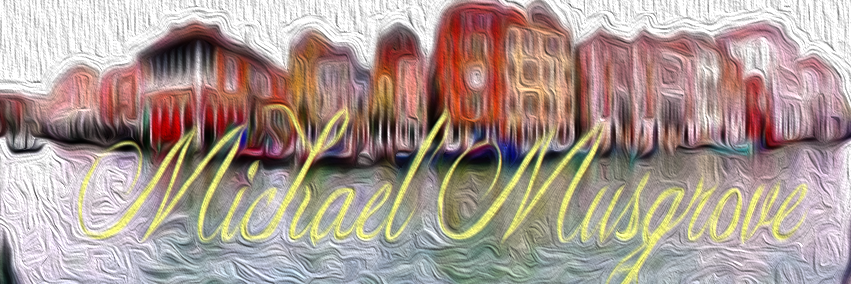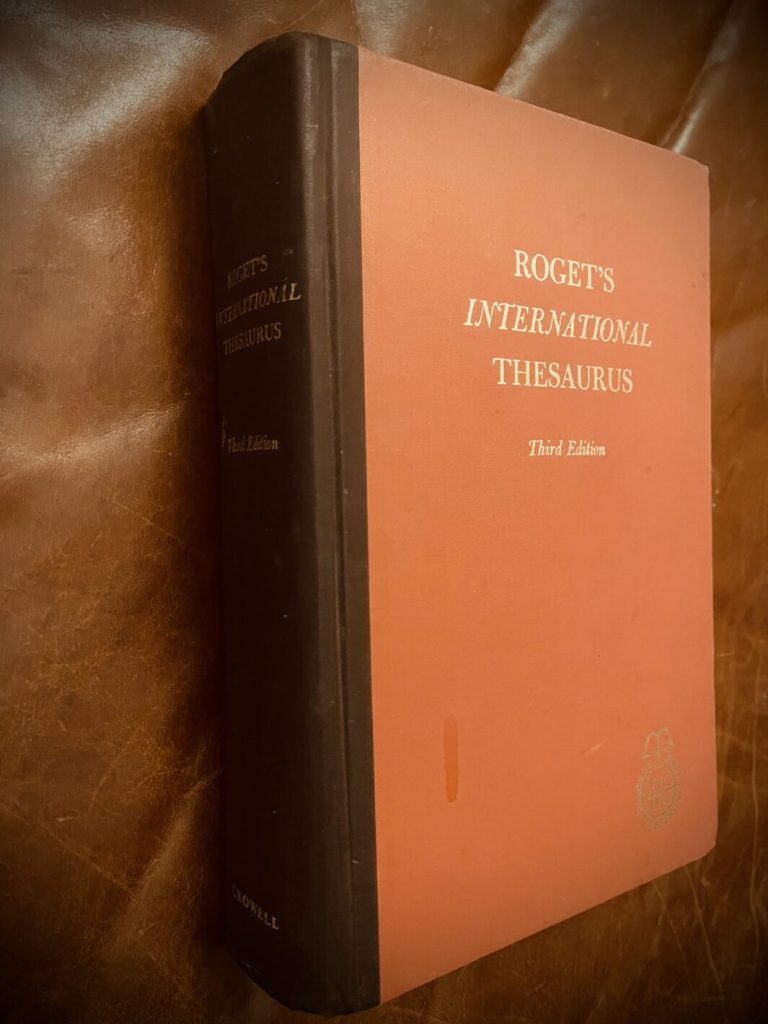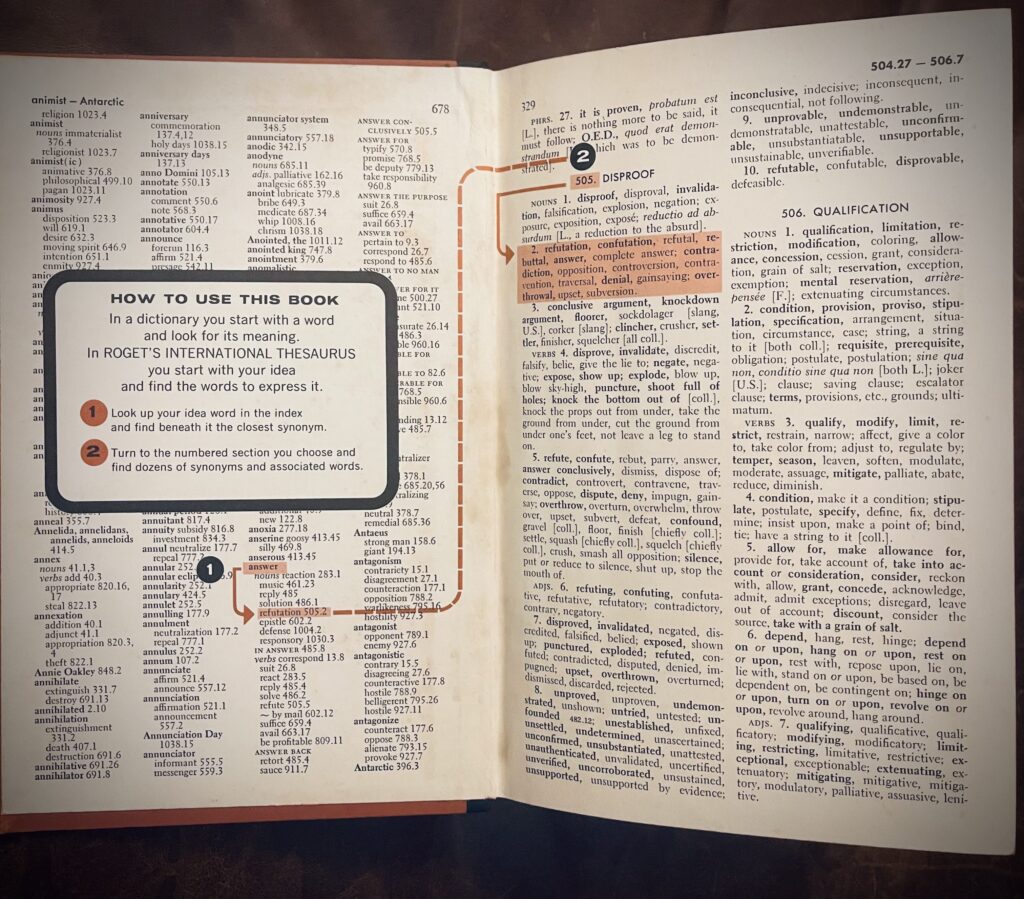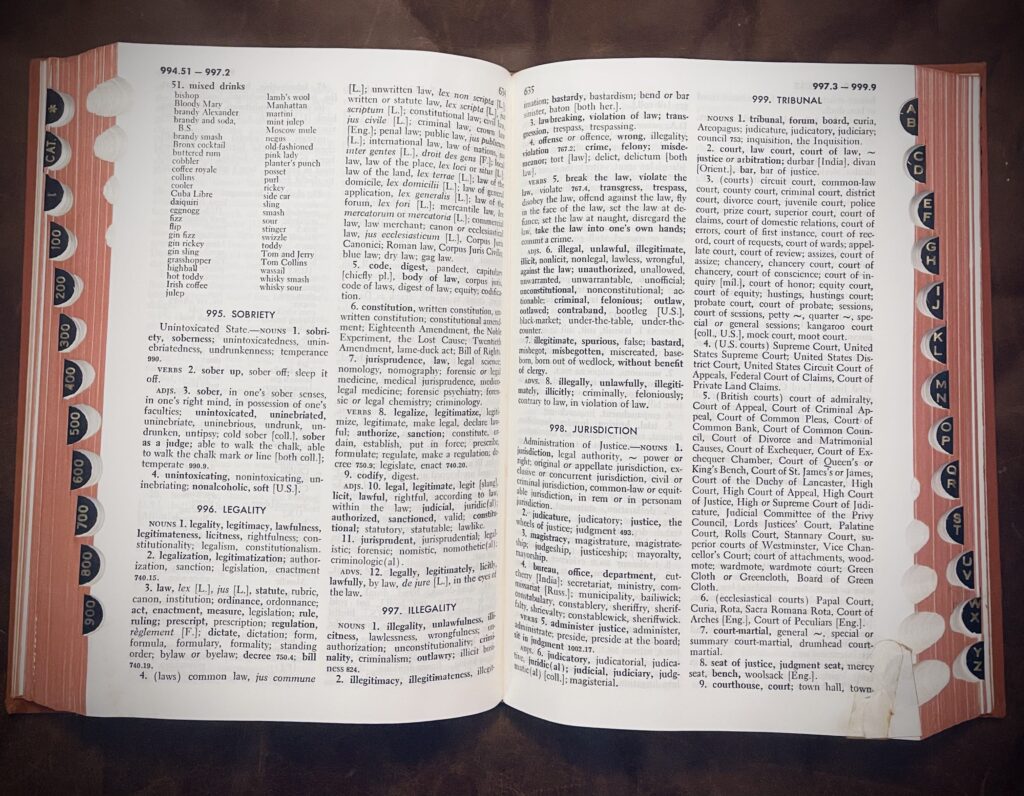If you read, write or think, you need to use words. Your inner voice can only define what you know how to tell it, which means educate your brain.
It makes sense that the more words we know the meaning of, how to use them, and when they are appropriate or useful to draw focus to a particular point or compel a person to act, the more powerful and dynamic our abilities become. And don’t you want powerful and dynamic abilities? Of course, you do! It makes life better, more comfortable, and has a multiplier effect. The better you’re able to describe or define a situation or item, the more valuable it innately becomes.
Constantly reinforcing your vocabulary is a good idea for several reasons. And not just for irritating siblings and friends with your erudite lexicon but to be able to define “things” in many different ways and perspectives. It affords you multipotentiality when negotiating a matter.
I can provide interminable examples, but here are just a few:
- You can fine-tune your description of an item, feeling, thought or anything you can render in words;
- Your confidence will grow, which helps with public speaking and improves your perspective on life;
- Your inner voice becomes more educated and sophisticated, which results in a better quality of life for yourself and those around you;
- The dreams you have during restorative sleep (REM) will leverage your ever-expanding mental dictionary and help you perform better during the hours you need it;
- You’ll perform better at work and become a more capable writer and speaker and communicator, which is valuable;
- Your interpersonal relationships will improve because you’ll be able to better understand what others are telling you by putting their output into terms that are perhaps easier to comprehend.
That’s only a small offering of ways I can think of just off the cuff. There may even be studies that find more possibilities and validate further what I’m saying but even if not, those reasons are true and make sense, no?
Here’s another example I just realized while I’m listening to a CEO of a major audio equipment manufacturing company struggling to describe, discuss, and answers questions about music and sound, which are esoteric topics.
He keeps reverting to saying the same thing over and over again: “brutally honest sound.” Great. what does that mean? He can’t express it and he’s on a conference call with 3 other CEOs and several hundred, if not thousands of over watchers/listeners. His vocabulary is limited and therefore is his ability to even discuss his business and how they operate. Does that not seem incredible? If anyone should know how to speak in terms of the abstract, it’s people in the sound/audio business.
There’s the sales pitch. So how do you cultivate your vocabulary? Glad you asked.
Several ways besides “Word of the Day” toilet paper, for starters.
Crossword Puzzles are a great way to entertain your brain. You may find that there are some words that keep reappearing in any given puzzle. Even so, games are one proven way to lodge new words into your brain, like Wordle, which is pretty fun. The NYT has great ones, but I wouldn’t recommend starting there or you may become overwhelmed and possibly bored. Wade into the pool with crosswords, don’t go off the high-dive, I learned. And I’m not recommending elementary ones found on a paper placemat at Chick-fil-A either. There are some intermediate and middle-of-the-road ones to merge onto faster lanes of traffic, which is what I’d recommend. No reason to frustrate yourself before even beginning. Like trying to pull onto an interstate on your bicycle. You’ll get run over and flattened like a pancake. That’s not to place a far-reaching and slow-slung, generalized net over humanity’s level of jargon. That’s with many endeavors and goals in life. Don’t cliff dive when you have a beach to wade from shore. Creating a bunch of crazy metaphors is another good reason to grow your vocabulary. You can explain your thoughts in different terms for the recipient of your thoughts to better understand what you’re saying, which is a very valuable skill in life, business, interpersonal relationships, and overall mental, emotional and psychological health. I consider that alone is a good reason among these many.
Reading, of course, is another exercise. But reading challenging books. “Heady books to sit and prophesize” as The Smiths sing about in “What She Said.” Writers who went to Oxford or Cambridge are a good start. And not Oxford, near Atlanta, Ga, in which there’s a big difference. The British have a way with words, certainly a sophistication that American English lacks. I don’t mean to libel my fellow Americans, but come on. If you’ve studied English, which was my major in University, believe it or not, you can recognize the contrast in a paragraph or two, or get into a heated argument with a highly educated Englishman and see who’s left flatfooted. It becomes as entertaining as much as informative.
Here’s a Google Chrome extension I found to help you read faster, and supposedly learn more. I’m not sure I immediately subscribe to that being possible, really. Depending on some realistic factors. Get the Extension Here. Out of a sense of thoroughness, I thought I’d include that, although I feel there’s a debatability to its effectiveness. For learning new words, is it good? I don’t know. But in order to learn new words, well, you need to understand and put at least a little thought behind them. For me, at least.
But reading “fast” meaning learning how to “gloss” correctly, can achieve that. It’s a talent I learned I graduate school that I thought I was proficient at before. I wasn’t mistaken, but I overestimated myself, which happens.
While getting my MBA I had a busy and full schedule. I also learned how to pull all-nighters, which has caused sleeping problems for me ever since. However, I also learned how to SCAN pages for pertinent and important information quickly. Which is an arguable way to increase your vocabulary. You need to learn new words in order to scan some small texted, long-sprawling with lots of jargon, and an academic spin on it, which means WORDY!
So possibly there’s some overlap? My ability to scan text has proven valuable. I can really get a lot more important work done knowing how to do that. But it took two years of practice, which has continued for 11 more years now. I recommend it aside from learning new words as a means of learning something new, Two separate endeavors, in other words.
Listening to interesting music with thoughtful lyrics. Not that there’s anything wrong with “Hot for Teacher,” but there are miles of songs that pull from poetry and great literature. When listening, hear the words they use, and if you don’t know what they’re referring to look it up. There’s probably a smartphone or computer or listening device with immediate answers like Google Nest or Siri within 3 feet of you right now to reference, and even just ask.
I listen to a lot of the Grateful Dead’s music. Their lyrics originally were derived from explorations with Ken Kesey and some Beat poets in the San Francisco scene in the late ’60s. Soon thereafter Jerry Garcia and Bob Weir, the two prolific guitarists and songwriters for the band mostly(Phil Lesh deserves credit where due as do Keith and Donna) met up with Robert Hunter and John Perry Barlow. And they penned most of the band’s incredible songs thereafter. And they took their inspiration from all sorts of other writers. (there’s some saying about how artists steal from each other) In this case, I bought the 50th Anniversary complete annotated Grateful Dead Lyrics.


Hang out with smart people. No, really. It’s said you’re the composite of the 5 people closest to you, so make sure those people aren’t spoons. I’ve had the pleasure of working with some brainy people over the years, so I always try to be the dumbest person in the room. It’s no fun being the smartest in the room, believe me. Luckily, for me, that’s a rarity.
Try to be more like William F. Buckley. And I don’t mean emulating his style or equally muffled posture or shuffleboard prowess. He had a large vocabulary which he wielded with care. It enabled him to retort with a rapier wit. The debates he’s participated in are legendary.
Another great way to expand your vocabulary is with Apps. If you have a smartphone, like an iPhone, search for “vocabulary builder.” There are some very well-rated apps that will help build your vocabulary, that are fun, too.
“Brain-training” apps also overlap here. And those have fun puzzles, games, and other ways to make, what may seem like tedious to some, more fun which will condition you to make learning new words and their usage part of your lifestyle. With technology, it’s easier than ever to quickly look up a word or synonym quickly. You don’t even need words anymore. With the basic Google app, for example, you can just take a photo of something, it will identify it for you, and you can learn all sorts of new things, like “what kind of bug is that?” “what makes this song catchy?” “why is [this poem, book, piece of art] considered important?” Google will spoon-feed you words that describe the abstract, and none too sophisticated-sounding which is a real concern these days, sadly.
Vocabulary Builder by Magoosh is another 5 star-rated rated by 5.4k people which is a free vocabulary learning game app that’s worth a try. If you find yourself with a minute or two of free time, playing this is a good, productive way to spend it. I find myself stuck by trains a lot in Louisville. Which is odd t me. That means there are tracks that lead straight to destinations downtown. I know what it is in my case, though. There’s a town in Louisville called “Butchertown” which is just what it sounds like. There are animal processing plants still operating deep into the urban area of Louisville Which says something about the price of commercial real estate here, too. In most places, that type f operation would have been pushed out to the rural areas near the tracks heading back to Lexington, where the one I deal with comes and goes to lots of times a day, carrying pigs, usually. At least one way.
Vocabulary.com is a good site to bookmark and also has apps for iOS and Android. It even has lists of new vocabulary words that revolve around a certain topic or event. How uncomplicated is that?
Books will do the trick, too:
Learning new words has a multiplier effect. For each new word you learn, you’re able to define that word with greater ease and pull from a growing set of words to apply to the term. So just learning a few new words is helpful no matter what. But there’s no reason to stifle yourself. Learn as much as you can and the meanings behind the word. I took Latin, which really helped me with breaking words down into sub meanings and provided a foundation to build upon, like legos.
Consulting with a Thesaurus is nearly a mandate. There are so many different ways to say what you mean, and a Thesaurus will provide you with ample recommendations. Online Thesauruses (that’s getting hard to type over and over) often don’t provide a complete offering of viable substitutes I feel. Sure, I use them all the time because they’re so readily available, but when I look through my 1962 hard copy of Roget’s Thesaurus, there’s a noticeable difference in what’s being gleaned. I believe the book is in its eighth edition now.
Hopefully, I’ve provided enough compelling reasons to continually expand on one’s vocabulary. I was tempted to create a video to substitute or accompany this “Life Lesson” but the spoken word has a way of dissipating into the ether of the mind, whereas when written it becomes more indelible. And at least can be referenced and paused upon more easily. It’s far easier to pause when reading and look something up, like a word for example, than when a string of words is going in one ear and possibly out the other. I know that’s true in my case.
Maybe the best is to offer both? I don’t know at the moment. But if I have the choice of listening to me or reading me, I know I’d probably choose the latter. I know my strength and weaknesses and I’m a better writer than an orator. I wish I was equally strong at both, but that’s a gift people like Buckley have far above me and why I’m no Buckley. But I find it worthwhile to develop some mentors, goals, and people to strive towards to at least try and be in leagues with, in order to grow and reach higher and further with anything in life. I do that with anything I’m serious about, such as parenting, playing guitar, my health, cooking, the quality of my life, investing, and so on. There are people who do it better, and I find them and study what they do to emulate and strive to elevate myself to their level, including ways to possibly surpass it at some point. (I’m not saying copy everyone, but study the greats and discover what makes them great. It normally involves a lot of hard work, when no one’s looking, for example. Just a tip.)





2 comments